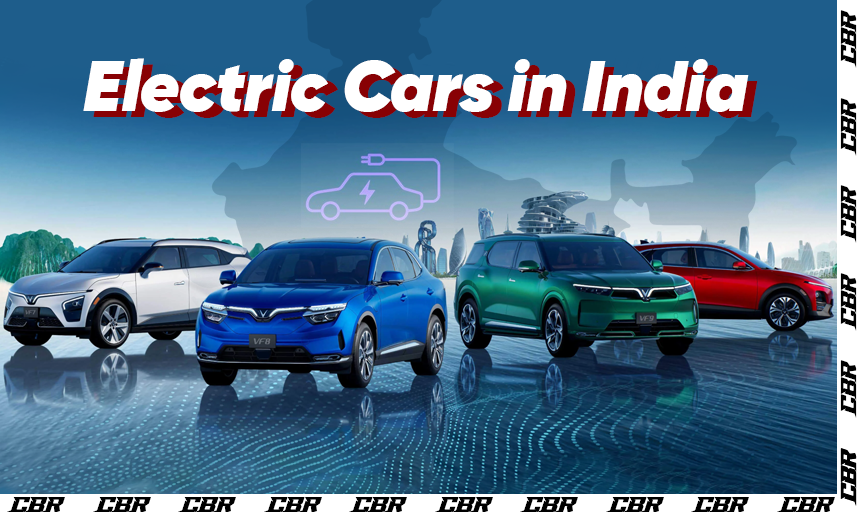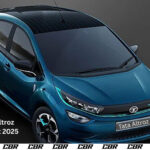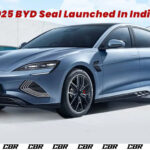Electric vehicles (EVs) are revolutionizing the automotive industry, and India is no exception. With increasing fuel prices, government incentives, and a growing concern for the environment, more Indians are considering the switch to electric cars. However, before making the investment, it’s essential to understand the various factors involved. This comprehensive guide will walk you through everything you need to know before buying an electric car in India, from the benefits and costs to battery life, charging infrastructure, and much more.
Why Should You Consider Buying an Electric Car in India?
Electric cars have numerous benefits that make them a compelling choice for Indian consumers:
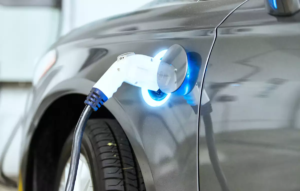
a) Cost Savings
Electric vehicles offer significant savings on fuel costs. Electricity is considerably cheaper than petrol or diesel, and with fewer moving parts, EVs also have lower maintenance costs. Over time, the total cost of ownership can be lower than traditional internal combustion engine (ICE) vehicles.
b) Environmental Impact
Electric cars produce zero tailpipe emissions, contributing to cleaner air and a reduced carbon footprint. As India works towards its sustainability goals, adopting EVs is a step in the right direction for eco-conscious consumers.
c) Government Incentives
The Indian government is promoting the adoption of electric vehicles through initiatives such as the Faster Adoption and Manufacturing of Hybrid and Electric Vehicles (FAME) scheme. Benefits include subsidies, lower registration fees, and reduced GST rates, making electric cars more affordable.
d) Technological Advancements
Recent advancements in battery technology and electric motor efficiency have improved the range and performance of electric cars. Many models now offer competitive ranges and can handle the demands of daily commuting and long-distance travel.
Key Considerations Before Buying an Electric Car in India
Before you decide to purchase an electric car in India, it’s crucial to evaluate several factors that will influence your experience as an EV owner.
a) Understanding Battery Life and Range
The battery is the heart of an electric vehicle, determining how far you can travel on a single charge. Factors influencing battery life and driving range include:
- Battery Capacity: Measured in kilowatt-hours (kWh), a higher capacity battery provides a longer range. For example, a 40 kWh battery can typically deliver a range of 300-400 km under standard conditions.
- Driving Style: Aggressive acceleration, high-speed driving, and frequent braking can reduce the range. Adopting a smooth, consistent driving style helps optimize battery life.
- Terrain and Load: Hilly terrains and carrying heavy loads can significantly decrease the range. Plan your trips accordingly if these factors are part of your daily commute.
b) Assessing the Charging Infrastructure
One of the primary concerns for prospective EV buyers in India is the availability of charging stations. While the charging network is expanding, it is essential to:
- Check Local Availability: Look for public charging stations near your home, workplace, and frequently visited locations. Apps like Plugshare and Tata Power EZ Charge can help locate nearby charging points.
- Home Charging Solutions: Installing a dedicated home charging unit is advisable for convenience and faster charging times. A standard 15-amp socket can take up to 12-16 hours for a full charge, whereas a dedicated Level 2 charger can do it in 4-6 hours.
c) Evaluating the Total Cost of Ownership
While electric cars generally have a higher upfront cost compared to ICE vehicles, they can offer substantial savings in the long run. Consider the following:
- Initial Purchase Price: Compare different models based on your budget, range requirements, and features. Some popular options include the Tata Nexon EV, MG ZS EV, and Hyundai Kona Electric.
- Maintenance Costs: EVs have fewer components, resulting in lower servicing costs. However, battery replacements can be expensive, so check the manufacturer’s warranty and battery life expectancy.
- Insurance Premiums: Electric cars typically have higher insurance premiums due to the cost of replacing batteries. Shop around for the best insurance plans tailored to EVs.
d) Performance and Driving Experience
Electric cars offer instant torque, providing a smooth and responsive driving experience. However, their performance can vary based on:
- Motor Power and Torque: Higher power and torque ratings offer better acceleration and top speed. For instance, the Hyundai Kona Electric delivers 134 hp and can accelerate from 0-100 km/h in under 10 seconds.
- Handling and Ride Comfort: The placement of the heavy battery pack on the floor lowers the car’s center of gravity, improving stability and handling. Test drive multiple models to find the one that suits your preferences.
Also Read: The Ultimate Guide to Buying an Electric Car: Key Considerations for First-Time EV Buyers
Enhancing the Driving Range of Your Electric Car
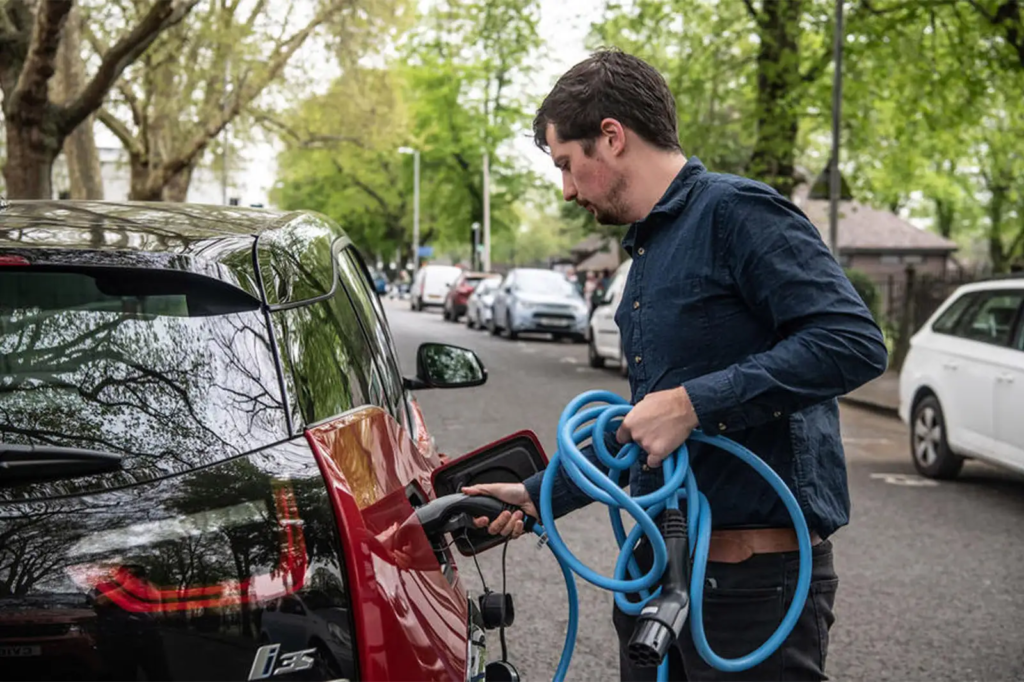
Maximizing your electric car’s driving range is key to a satisfying ownership experience. Here are some tips to help you get the most out of your EV:
- Use Eco Mode: Most electric cars come with an Eco mode that limits acceleration and power consumption, extending the driving range.
- Minimize Use of Air Conditioning and Heating: Climate control systems can drain the battery quickly. Use them judiciously or opt for seat warmers and fans as alternatives.
- Keep Tires Properly Inflated: Under-inflated tires increase rolling resistance, reducing efficiency. Check tire pressure regularly to maintain optimal performance.
- Plan Charging Stops for Long Trips: Use apps or the car’s navigation system to locate charging stations along your route and plan for breaks accordingly.
Also Read: You Won’t Believe These Electric Cars Are Under ₹20 Lakh
Addressing Common Concerns About Electric Cars in India
a) Will My Electric Car Lose Charge When It’s Parked?
Electric cars experience minimal battery drain when parked for extended periods, typically losing 1-2% of charge per week. However, extreme temperatures can impact battery performance, so it’s advisable to park in a shaded area or garage.
b) What Happens If My Electric Car Runs Out of Charge?
If your electric car runs out of charge, it will come to a stop. You will need to call roadside assistance or tow the vehicle to the nearest charging station. Some EV manufacturers provide emergency charging services for such situations.
c) Can I Charge My Electric Car Using a Regular Household Outlet?
Yes, you can charge your EV using a standard 15-amp household outlet, but it will be slow. It’s recommended to install a Level 2 home charger, which significantly reduces charging time and is safer for long-term use.
d) How Can I Improve the Lifespan of My EV Battery?
To prolong your EV battery’s life, avoid frequent fast charging and keeping the battery level below 20% or above 80% for extended periods. Regularly updating the car’s software and keeping it cool during hot weather can also help.
Choosing the Right Electric Car Model for Your Needs
The Indian market offers a variety of electric cars catering to different needs and budgets. Here are some popular options:
- Tata Nexon EV: Priced competitively, it offers a range of around 325 to465 km and is equipped with modern features, making it an excellent choice for city driving.
- MG ZS EV: With a range of 461 km and a spacious interior, it’s ideal for families and long-distance travelers.
- Hyundai Kona Electric: A premium option with a range of up to 452 km, advanced safety features, and superior build quality.
Also Read: Electric Vehicles vs. Gas Vehicles: Which One Is Better?
Final Thoughts: Is Buying an Electric Car in India the Right Choice?
Switching to an electric car in India is influenced by factors like daily driving needs, budget, and access to charging infrastructure. EVs can offer significant savings and a smoother driving experience for those with a short to moderate daily commute. However, hybrid models or ICE vehicles might be more practical for long-distance travelers or those living in areas with limited charging options.
Conclusion
Electric cars represent the future of transportation, offering numerous benefits over traditional vehicles. If you’re considering buying an electric car in India, take the time to research and understand the various aspects of EV ownership, including battery life, charging options, and total cost of ownership. With the right choice, you can enjoy a cleaner, quieter, and more economical driving experience.
Common FAQs About Buying an Electric Car in India
a) Is It Worth Buying an Electric Car in India?
Yes, buying an electric car in India is worth considering due to lower running costs, environmental benefits, and government incentives. However, evaluate the availability of charging infrastructure in your area and your daily driving needs.
b) What Factors Determine the Driving Range of an Electric Car?
The driving range of an electric car is determined by factors such as battery capacity, driving conditions, and the use of auxiliary systems like air conditioning and heating.
c) What Is the Most Important Component of an Electric Car?
The battery is the most important component, as it determines the car’s range, performance, and overall cost.
d) How Can I Enhance the Driving Range of My Electric Car?
You can enhance the driving range by maintaining a moderate speed, using regenerative braking, and minimizing the use of air conditioning and other power-consuming features.
e) Will My Electric Car Lose Charge When It’s Parked?
Electric cars lose minimal charge when parked for long periods, mainly due to the car’s electronic systems. However, the loss is usually negligible.
f) Which Is the Best Value for Money Electric Car in India?
The Tata Nexon EV and MG ZS EV are currently considered the best value-for-money electric cars in India due to their range, features, and affordability.
g) What Happens If My Electric Car Runs Out of Charge?
If your electric car runs out of charge, you will need to tow it to the nearest charging station. Some manufacturers offer roadside assistance services to help in such situations.
Also Read: 5 New Ducati Bikes Are Coming—And You Won’t Believe How Soon

